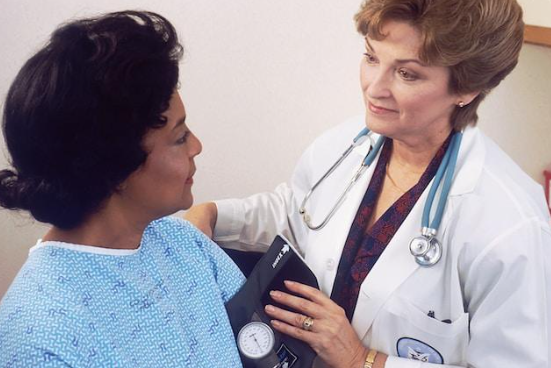Marching Towards Wellness: Colorectal Awareness Month

Colorectal Awareness Month, observed annually in March since 1999, serves as a vital platform to educate, raise awareness, and encourage preventive measures against colorectal cancer. Colorectal cancer (CRC) stands as the third most common cancer in the United States.
Read on to understand the importance of Colorectal Awareness Month, the prevalence of colorectal cancer, risk factors, preventive measures, and the significance of early detection.
What Is Colorectal Cancer?
Colorectal cancer, which includes cancers of the colon and rectum, arises from abnormal growths of tissue called polyps. Over time, these polyps may develop into cancer if not detected and removed early. Colorectal cancer affects people of all races and ethnicities, making it imperative to spread awareness about its risks and preventive measures.
Colorectal Cancer Statistics
Excluding skin cancers, colorectal cancer ranks as the third most prevalent cancer in both men and women across the United States. According to the American Cancer Society's estimates for 2023, there have been 106,970 new cases of colon cancer and 46,050 new cases of rectal cancer.
While the overall incidence of colon and rectal cancer has decreased since the mid-1980s, attributed to increased screenings and lifestyle changes, this positive trend is predominantly observed among older adults. Paradoxically, for individuals under 50, incidence rates have been on the rise, increasing by 1% to 2% annually since the mid-1990s.
Risk Factors
Colorectal cancer risk factors encompass a range of influences, spanning both genetic and lifestyle aspects. Understanding and mitigating these risk factors through regular screenings, lifestyle modifications, and genetic counseling can empower individuals to reduce their susceptibility to colorectal cancer:
Age
Advanced age is a significant risk factor, with the likelihood of colorectal cancer increasing as individuals grow older.
Family History
A family history of colorectal cancer raises the risk, especially if close relatives like parents or siblings have been diagnosed.
Personal History of Polyps or Cancer
Individuals with a history of colorectal polyps or cancer are more likely to develop the disease again.
Inflammatory Bowel Diseases (IBD)
Conditions like Crohn's disease or ulcerative colitis, categorized as inflammatory bowel diseases, elevate the risk of colorectal cancer.
Genetic Conditions
Certain genetic conditions, such as Lynch syndrome or familial adenomatous polyposis (FAP), can significantly predispose individuals to colorectal cancer.
Unhealthy Lifestyle Choices
Dietary habits play a role, with a diet high in red and processed meats posing an elevated risk. Insufficient physical activity contributes to the risk, emphasizing the importance of an active lifestyle. Obesity is also a known risk factor, with excess body weight linked to an increased likelihood of colorectal cancer. Smoking has been associated with colorectal cancer, underscoring the importance of smoking cessation for overall health, and excessive alcohol consumption is another modifiable risk factor, with heavy drinking correlated with a higher risk of colorectal cancer.
Preventive Measures
Colorectal cancer prevention involves a combination of healthy lifestyle choices and routine screenings, creating a comprehensive approach to reduce the risk of developing the disease.
Healthy Diet
The following dietary changes can help reduce the risk of colorectal cancer:
- Fiber-Rich Foods: Include a variety of fiber-rich foods in your diet, such as whole grains, legumes, fruits, and vegetables. Fiber aids digestion and helps maintain a healthy balance in the digestive system.
- Colorful Fruits and Vegetables: Choose a vibrant array of fruits and vegetables, as they are rich in antioxidants, vitamins, and minerals. These nutrients contribute to overall health and may protect against colorectal cancer.
- Moderate Red Meat Consumption: While red meat can be part of a balanced diet, it's advisable to consume it in moderation. Opt for lean cuts and consider alternative protein sources such as fish, poultry, or plant-based proteins.
- Limit Processed Foods: Processed and cured meats, like bacon and sausage, should be limited as they have been associated with an increased risk of colorectal cancer.
- Hydration: Ensure an adequate intake of water to support digestion and maintain overall health.
Regular Physical Activity
Try the following physical activities to help reduce the risk as well:
- Aerobic Exercise: Engage in regular aerobic activities such as brisk walking, jogging, cycling, or swimming. Health guidelines recommend 150 minutes of moderate-intensity aerobic exercise per week.
- Strength Training: Include strength training exercises twice a week or more. Building muscle not only enhances overall fitness but also contributes to weight management.
- Maintain a Healthy Weight: Physical activity is crucial for weight management. Maintaining a healthy weight reduces the risk of colorectal cancer, as excess body fat is linked to an increased likelihood of the disease.
- Consistent Activity: Consistency is key. Strive for regular, sustained physical activity rather than sporadic, intense workouts.
Screening Tests
To keep an eye on any polyps that might turn cancerous, the following screening tests can be done:
- Colonoscopies: Regular colonoscopies are crucial in detecting and removing precancerous polyps or early-stage cancer, contributing to effective prevention.
- Fecal Occult Blood Tests (FOBT): These tests identify blood in the stool, providing an early indication of potential issues.
- Sigmoidoscopies: Similar to colonoscopies, sigmoidoscopies focus on examining the lower part of the colon for abnormalities.
How Does Screening Help?
Screening means checking for cancer even if you don't feel sick. Scientists have made tests to find cancer early before any signs show up. The main goal of cancer screening is to lower the number of people who die from cancer or, ideally, stop cancer deaths completely. It can also help reduce the number of people who get cancer by catching it early, as that is when it's easier to treat. Testing also helps to find people who might need more tests more often because they have a higher chance of getting cancer due to things like gene changes, family history, or inherited conditions.
Importance of Early Detection
Early detection of colorectal cancer dramatically improves the chances of successful treatment and survival. Colorectal Awareness Month emphasizes the importance of routine screenings, aiming to dispel myths and fears associated with these procedures.
The Role of Primary Care Physicians
Primary care physicians are often the first point of contact for individuals seeking medical advice. Colorectal Awareness Month underscores the importance of primary care physicians in promoting colorectal health. Encouraging regular screenings, discussing risk factors, and providing information on lifestyle modifications empower individuals to take an active role in their colorectal well-being.
The Role of Caregivers
Caregivers play an essential role in the journey of individuals facing colorectal cancer. Colorectal Awareness Month recognizes and appreciates the efforts of caregivers, emphasizing the need for their support, both emotionally and practically. Providing resources and creating networks for caregivers can contribute to a more comprehensive and compassionate approach to colorectal health.
Promoting Awareness and Education
Colorectal Awareness Month serves as a platform to educate the public about the importance of regular screenings, healthy lifestyle choices, and the signs and symptoms of colorectal cancer. Various campaigns, events, and educational materials are deployed to raise awareness and encourage individuals to take control of their colorectal health.
Community Outreach Programs
Many organizations and healthcare institutions organize community outreach programs during Colorectal Awareness Month. These initiatives aim to reach diverse populations, providing information about risk factors, screening options, and the importance of early detection. Free or discounted screenings are often offered to make these essential healthcare services more accessible.
Engaging the Younger Generation
Colorectal Awareness Month can extend its reach by engaging the younger generation through social media campaigns, interactive events, and targeted educational programs. By fostering an understanding of colorectal health early on, we equip younger individuals with the knowledge and awareness necessary to make informed choices and advocate for their well-being throughout their lives.
Support for Patients and Survivors
Colorectal Awareness Month is not only about prevention but also about providing support to those diagnosed with colorectal cancer. Support groups, counseling services, and survivor stories are shared to inspire and empower individuals facing this challenging journey. Creating a sense of community and fostering emotional well-being are crucial aspects of managing colorectal cancer.
Celebrating Success Stories
Colorectal Awareness Month allows us to celebrate the triumphs and success stories of those who have overcome colorectal cancer. Sharing these stories not only inspires hope but also highlights the importance of early detection, timely treatment, and a resilient spirit in the face of adversity.
Advancements in Colorectal Cancer Research
Ongoing research plays a pivotal role in understanding colorectal cancer better and developing more effective treatments. Colorectal Awareness Month sheds light on the latest advancements in research, clinical trials, and emerging therapies. Increased awareness can lead to greater public support for research initiatives and fundraising efforts.
The Future of Colorectal Health
As we look ahead, Colorectal Awareness Month serves as a reminder that our actions today shape the future of colorectal health. Continued research, advancements in healthcare infrastructure, and a collective commitment to prevention are crucial for reducing the burden of colorectal cancer globally. Efforts to improve awareness, accessibility to screenings, and overall colorectal health should be sustained throughout the year.
Final Thoughts
Colorectal Awareness Month is an invaluable opportunity to unite individuals, communities, and healthcare organizations in the fight against colorectal cancer. As we march towards wellness, let Colorectal Awareness Month inspire lasting changes in how we approach colorectal health, ensuring a brighter and healthier future for all.
Take steps to improve your colorectal health with
Northlake Gastroenterology. Join us in prioritizing prevention and early detection for a brighter future. Your well-being matters;
schedule your appointment today!
More Blogs








© All Rights Reserved 2023 | Northlake Gastroenterology Associates




